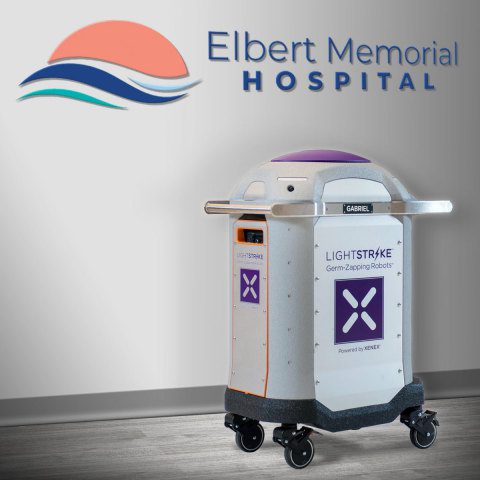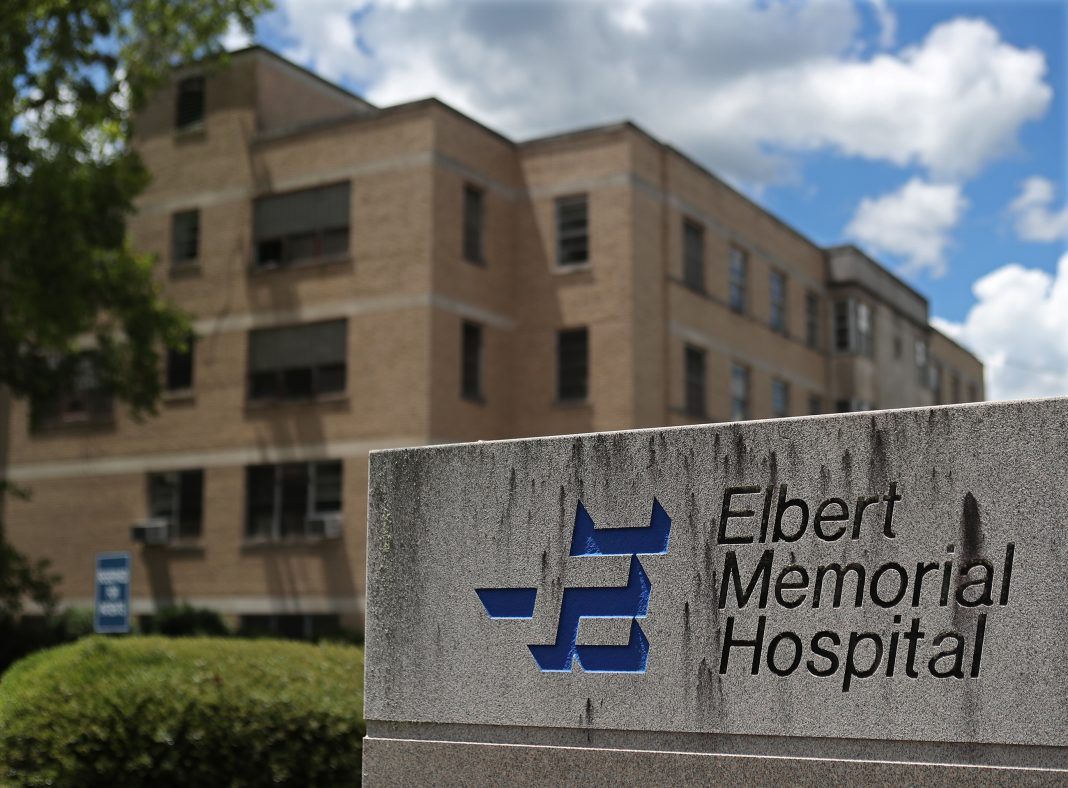Elbert Memorial Hospital First Hospital in Region to Deploy Coronavirus-Killing Technology
 Elbert Memorial Hospital has taken high-tech measures with the deployment of two LightStrike Germ-Zapping Robots that quickly destroy viruses and bacteria in hard-to-clean places. The robots are proven to deactivate SARS-CoV-2, the virus that causes COVID-19, on surfaces in 2 minutes.
Elbert Memorial Hospital has taken high-tech measures with the deployment of two LightStrike Germ-Zapping Robots that quickly destroy viruses and bacteria in hard-to-clean places. The robots are proven to deactivate SARS-CoV-2, the virus that causes COVID-19, on surfaces in 2 minutes.
“Elbert Memorial Hospital is committed to providing the safest and cleanest possible environment for our patients and staff. We want to do everything we can to reduce the spread of pathogens that can cause infections like COVID-19. Investing in these Xenex robots just furthers our commitment to the healthcare of this community,” said Kerry Trapnell, CEO of the hospital.
Manufactured by Xenex Disinfection Services, a world leader in UV disinfection for healthcare facilities, the robots use pulsed xenon to create intense bursts of broad spectrum ultraviolet (UV) light that quickly destroy bacteria and viruses without damaging materials in the room. More than 40 peer-reviewed studies have been published by healthcare facilities validating the efficacy of the LightStrike robot disinfection technology.
The pandemic has increased the world’s awareness of pathogen transmission. Some viruses and bacteria are becoming resistant to cleaning chemicals, antibiotics and even hand sanitizers, so forward-thinking hospitals like Elbert Memorial Hospital are turning to new technology to enhance their cleaning and sanitation practices. The LightStrike robots are proven to quickly deactivate coronavirus and other microorganisms that can cause infections, such as Clostridium difficile (C.diff), methicillin-resistant Staphylococcus aureus (MRSA), and vancomycin-resistant Enterococci (VRE) that often dwell on high-touch surfaces in healthcare facilities.
The robot works quickly (5-minute cycles) and does not require warm-up or cool-down time, so members of Elbert Memorial Hospital’s cleaning team are able to disinfect dozens of rooms per day (per robot). The hospital is currently conducting a naming contest for its two robots, which are already at work disinfecting rooms throughout the hospital, including the emergency department, patient rooms, and patient care areas, operating rooms, public restrooms and offices.
Use of the LightStrike robots enhances the hospital’s already thorough processes for cleaning rooms and destroying the pathogens that can cause infections. Operated by the hospital’s environmental services (EVS) team, the LightStrike robot can disinfect a typical patient room in less than 15 minutes. The robot is part of the EVS team and did not replace any employees. First the room has to be cleaned and all visible dirt/fluids removed, trash emptied, linens removed – a normal cleaning. Then once the room is visually clean, the robot is brought in by the EVS team member and destroys microorganisms that may have been missed during the manual cleaning process – it destroys the deadly pathogens the naked eye can’t see.
